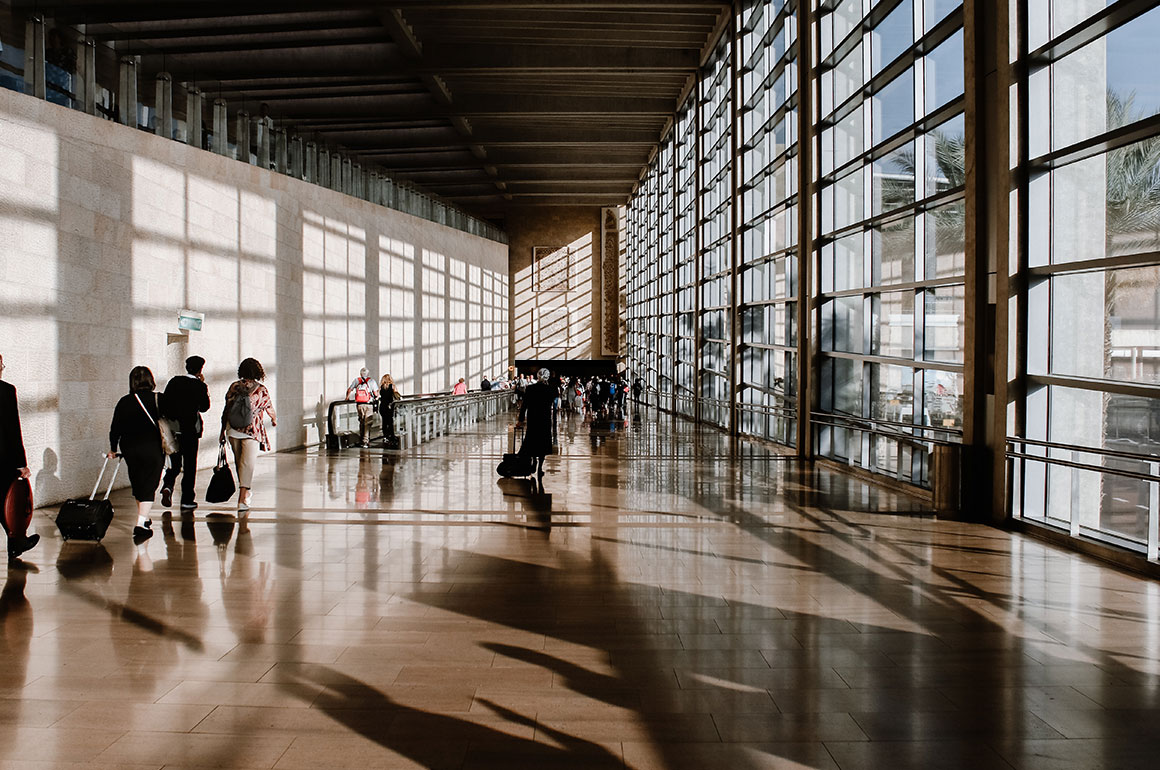Skift Take
The US is easing its travel restrictions on international visitors as of November 8. The patchwork of country-by-country bans will no longer apply, but vaccine requirements will be more stringent. What will this mean for events?
The easing of the United States travel ban on international travelers is fast approaching. Some people are delighted with the news and cannot wait to get on a flight and head stateside. Others are more cautious.
Let’s look at what it means for the events sector.
Vaccination Trumps Country of Origin
The easing of the ban becomes effective on 8 November 2021. What this means is that fully vaccinated international travelers will be allowed to enter the United States, even if they are coming from countries that were previously subject to outright bans.
Travelers from thirty-three countries have been barred from entering the US for the past 18 months of the pandemic, with exceptions made solely for US citizens. Banned regions included the 26-nation Schengen Zone (European Union), the United Kingdom, China, India, and Brazil.
As of November 8, travelers coming from these countries will be allowed to enter the US, provided they have adequate proof of vaccination.
One of the key issues that anyone seeking to travel to the U.S. needs to look at is what the definition of being fully vaccinated involves. Depending on where you live, you could have a different understanding of what it means.
How is the US government defining “fully vaccinated” for the purpose of travel? Both FDA-approved vaccines and the WHO’s Emergency Use Listing vaccines will be accepted, as well as a mixed-dose vaccination from the list of approved brands.
These newly announced policies, however, are not just about loosening travel restrictions. Instead, they are about privileging vaccine status over country of origin. For those travelling from countries that were never subject to an outright ban, it was formerly not necessary to show proof of vaccination — only proof of a negative Covid test. Under the new rules, however, only travelers with US citizenship will be allowed to enter the country without proof of vaccination.
If you have any doubts or any questions regarding your vaccination status under US policy, it’s best to check directly with the CDC.
The Economic Impact
With such a significant period in which international travelers were barred from entering the US, the adverse impact on the economy has been huge. Reports for economic damage run into the billions. It stands to reason therefore that the easing of the travel ban can only be good for economic recovery.
“Visitors from the EU and the UK contributed more than $46 billion to the U.S economy in 2019, showing just how critical this move will be to the U.S recovery”, said Julia Simpson, CEO of the World Travel & Tourism Council, in response to the announcement.
Since the announcement there has been heightened excitement. People are looking forward to meeting and doing business in person again. And if you need any evidence of the renewed appetite for travel, you only have to look at the experience of United Airlines: “In the days immediately after the U.S. announced it would reopen to international travel, trans-Atlantic bookings for November and beyond exceeded 2019 levels for the first time since the start of the pandemic”.
HOSPITALITY, MEETINGS, AND EVENTS
As a major contributor to overall travel spend, international events hosted in the US will likely be a significant driver for the recovery of both domestic and global economies.
According to the latest results from the Global Business Travel Association (GBTA) poll of 21 October 2021, there is increased industry optimism, a rise in business travel bookings, and support for vaccine programs.
This is welcome news for the airline industry. But what is the view of other providers such as hotel groups and venues? Is there the same positivity? Kaaren Hamilton, vice president of global sales at Sonesta, offers her views:
“Lifting the land border restriction with Canada and Mexico will immediately impact both the business travel and leisure segments[…] Seeing some real traction in business travel should also help the meetings business return to more pre-pandemic levels. Once the business traveler is back on the road, they will feel more comfortable attending and hosting meetings. Although the US hotel industry has been largely supported with leisure travel these last many months, we have dearly missed the international traveler who often books our hotels through wholesale and tour operators that are so important to our mix of business.”
With the US being such a hub for global business, the return of international travel will undoubtedly help to kickstart the recovery of B2B events and corporate meetings.
Considerations for Event and Expo Organizers
While the recent policy change is undeniably good for business, its full impact may not be immediate. Any savvy event professional will tell you that events and exhibitions take months of planning. Sufficient time is needed to ensure that events are perfectly produced to meet the ever-increasing demands of attendees and other stakeholders.
Events and exhibitions cannot easily be switched on or off. For this reason, both the scope and the timing of government travel policy changes can have massive implications for organizers.
For large show organizers the easing of travel restrictions is good news. This is tempered, however, by the work that needs to be undertaken to manage delegate expectations and produce the best possible show in the midst of shifting regulations.
BUILDING EXCITEMENT WHILE MANAGING EXPECTATIONS
The first major events to take place after November 8 will help to set a precedent for the industry.
IMEX Las Vegas, for example, is due to take place from November 9 to 11, 2021, right on the heels of the US policy change. Even before the announcement of the updated travel policies, IMEX had been working hard to make sure that their stakeholders were well informed as to their plans. And it looks as though this proactive effort is now paying off given the number of social media postings about people booking flights to Las Vegas for the show.
But as well as encouraging people to attend, organizers have to ensure that all the staffing, equipment, and supplies needed to stage a truly global event are available. Can organizers hire them locally, or will they need to fly them in? If the latter, will they need to complete any documentation? And in the context of recent shortages, are there any supply chain issues that could impact the event?
Managing expectations will be crucial as internationally hosted events in the US begin to restart. Delegates may complain if an unrealistic picture is painted by organizers. One factor to consider is the number of businesses that have closed down due to the pandemic. As a result, attendees may be left with reduced options for hotels, restaurants, and other local attractions.
These issues may be less of a concern in a city like Las Vegas with its local economy primed to host large-scale events, but it is worth considering the limitations of any host city in the current economic climate.
It’s a tough line to tread for an organizer. Delegates must be encouraged to come, but the effects of an 18-month travel ban and intermittent lockdowns cannot be undone overnight.
The International Traveler Perspective
Anyone going to an event overseas must travel to get there. It doesn’t matter whether you are a delegate, a sponsor, or a VIP; you have to make a journey. And many were well-versed in how to manage these journeys in pre-Covid times, especially veteran travelers.
But with the passing of time and the extra Covid precautions needed, what should the international traveler now be mindful of?
Taking time to exercise due diligence on what will happen at each stage of their journey will be key. This is not just about the flight or getting to the event venue, but also about everything else in between. This includes understanding entry criteria for hotel accommodation, dine-around restaurants, and other local facilities. Will they require proof of vaccination, for example?
Remember local, regional, and national requirements could differ and frequently do. Getting on the flight, clearing customs, and being able to visit each of the venues on the itinerary without being denied access will become something that needs to be fully considered in advance of the trip. Being aware of the necessary requirements is the first step, and from there you can make a plan.
Allow extra time for boarding flights, clearing immigration, and for each step of your journey in general. Be prepared for more documentation requests. And make sure you have the correct evidence that you are fully vaccinated and Covid-negative.
In Conclusion: The Need to Stay Vigilant
Since the pandemic first hit, people have been encouraged to stay vigilant to reduce its impact. They have been asked to restrict who they meet. They have been asked to wear face masks. They have been encouraged to be vaccinated. And there have been other measures as well.
Various country leaders have approached dealing with Covid-19 in different ways. The US was among those that took a strict stance on international travel, and there may yet be further setbacks. No one can predict what will come up in the future. Leaders can close countries again and will do so if they feel it’s not in their interest to stay open.
While it’s important for event organizers to seize any opportunities that come along, it’s also wise to stay vigilant. Closely follow news on how (and where) the virus is circulating, what the political leaders are saying, and what the possible consequences could be for your event.
In keeping, it’s good to have contingency plans in place. Will your event be able to move forward if international delegates are no longer able to attend? At least for the near future, event planners will have to be cautious about any investments made in anticipation of a boom in international attendance.





